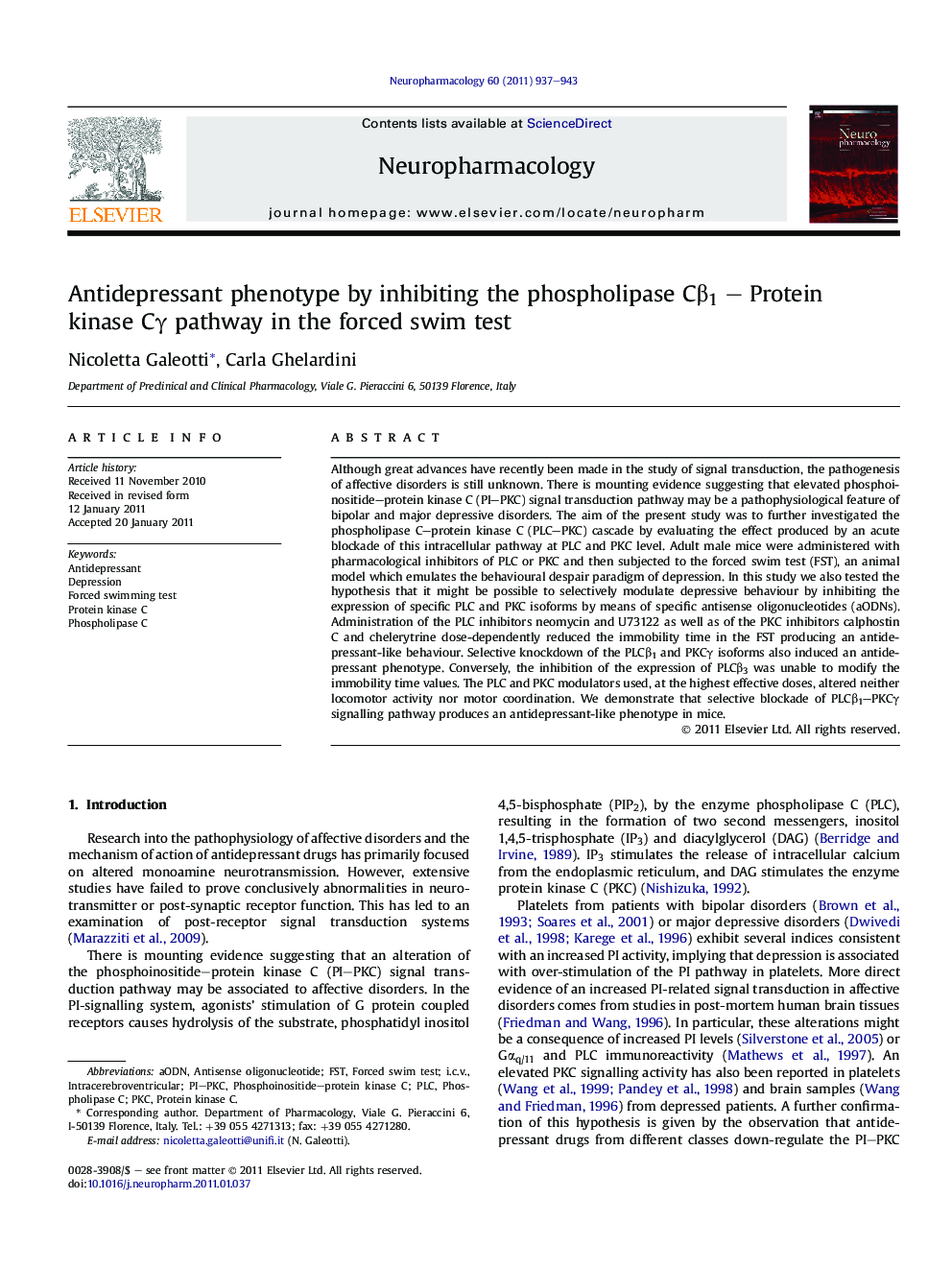| کد مقاله | کد نشریه | سال انتشار | مقاله انگلیسی | نسخه تمام متن |
|---|---|---|---|---|
| 2493982 | 1115538 | 2011 | 7 صفحه PDF | دانلود رایگان |

Although great advances have recently been made in the study of signal transduction, the pathogenesis of affective disorders is still unknown. There is mounting evidence suggesting that elevated phosphoinositide–protein kinase C (PI–PKC) signal transduction pathway may be a pathophysiological feature of bipolar and major depressive disorders. The aim of the present study was to further investigated the phospholipase C–protein kinase C (PLC–PKC) cascade by evaluating the effect produced by an acute blockade of this intracellular pathway at PLC and PKC level. Adult male mice were administered with pharmacological inhibitors of PLC or PKC and then subjected to the forced swim test (FST), an animal model which emulates the behavioural despair paradigm of depression. In this study we also tested the hypothesis that it might be possible to selectively modulate depressive behaviour by inhibiting the expression of specific PLC and PKC isoforms by means of specific antisense oligonucleotides (aODNs). Administration of the PLC inhibitors neomycin and U73122 as well as of the PKC inhibitors calphostin C and chelerytrine dose-dependently reduced the immobility time in the FST producing an antidepressant-like behaviour. Selective knockdown of the PLCβ1 and PKCγ isoforms also induced an antidepressant phenotype. Conversely, the inhibition of the expression of PLCβ3 was unable to modify the immobility time values. The PLC and PKC modulators used, at the highest effective doses, altered neither locomotor activity nor motor coordination. We demonstrate that selective blockade of PLCβ1–PKCγ signalling pathway produces an antidepressant-like phenotype in mice.
Figure optionsDownload as PowerPoint slideHighlights
► Phospholipase C-protein kinase C (PLC-PKC) cascade involvement in depression.
► PLC and PKC inhibitors, aODN anti-PLCβ1 and -PKCγ reduced immobility time in the forced swim test.
► No side effect was detected.
► Blockade of the PLCβ1-PKCγ pathway produces an antidepressant-like behaviour.
Journal: Neuropharmacology - Volume 60, Issue 6, May 2011, Pages 937–943